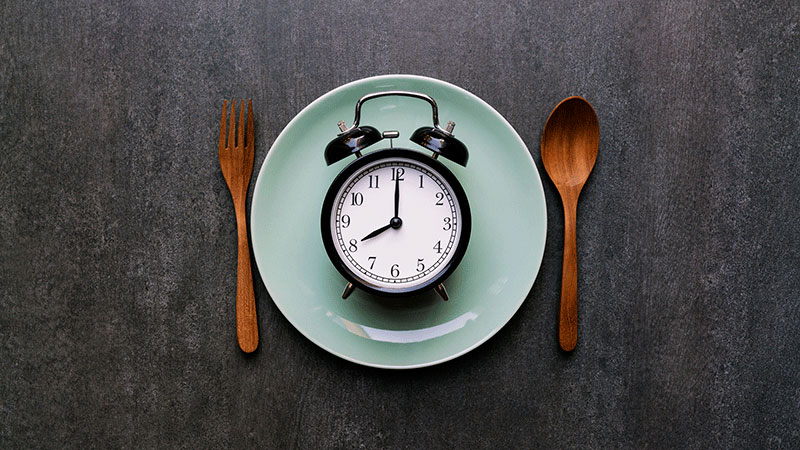Is Eating Three Meals a Day the Only Way to Be Healthy?

How many meals a day should we eat to achieve and maintain a healthy weight? Most of us were taught to have “three square meals” a day. But having more smaller meals throughout the day can help balance out our hunger and calories.
“It is suggested that those who eat more frequent, smaller meals have learned how to limit their intake at each meal and do not have the ravenous appetite that accompanies the starve-all-day, stuff-all-night approach,” said Linda Van Horn, Ph.D., a registered dietitian and professor in the Department of Preventive Medicine at Northwestern University.
“Overall, it is still the total calorie intake that determines someone’s body size,” said Dr. Van Horn, who is also an American Heart Association volunteer. “Excess calorie intake, whether spread out over the day or consumed at one meal, will still contribute to weight gain.”
It may seem as if avoiding food is a good way to lose weight, but it’s not. Depriving your body of food isn’t good for you, and you typically wind up getting all those calories back — and then some — because you end up making yourself so hungry. For a healthier you, focus on spreading your calorie intake across the course of the day. And try not to skip meals.
“Those who forego breakfast, eat little or no lunch and then consume a large evening meal tend to have higher BMIs,” Dr. Van Horn said.
Getting started can be as easy as 1-2-3!
- Set your calorie targets. If you need to lose weight, then you need to expend more calories than you take in each day. Most people need to subtract about 500 calories per day from their diet to lose 1 pound per week. Learn how to make smart choices when dining out and how to cook healthy recipes at home.
- Start a food diary. Write down what you eat as well as the times of day and portions in a food diary or tracker (PDF). This will not only help you keep track of your meals and calorie intake but also may point out some bad habits you weren’t aware of. Do you fill your afternoons with high carb and sugary snacks? Are your portion sizes pushing you over your calorie goal? Are you skipping meals? Learn how to easily identify correct portions by tracking what you eat.
- Get moving. It’s important for your overall health to get regular exercise. And, it can also be a key to losing — or maintaining — weight.







